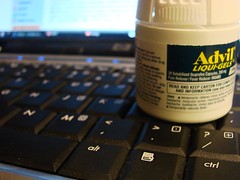AP Language Terms Set #1 Flashcards
Terms : Hide Images [1]
| 13256064034 | Rhetoric | the art of effective or persuasive speaking or writing, especially with the use of figures of speech and other compositional techniques. |  | 0 |
| 13256064035 | Bombastic | High sounding but with little meaning; inflated;grandiloquent. |  | 1 |
| 13256064036 | Ethos | appeal to credibility |  | 2 |
| 13256064037 | Logos | An appeal to logic or reason. |  | 3 |
| 13256064038 | Pathos | Appeal to emotion. |  | 4 |
| 13256064039 | Capricious | Impulsive; unpredictable. Sudden and unaccountable changes of mood or behavior. |  | 5 |
| 13256064040 | Tone | Writer's attitude, mood or moral outlook toward the subject and/or the readers. |  | 6 |
| 13256064041 | Appeal | the power of arousing a sympathetic response, to arouse a sympathetic response. |  | 7 |
| 13256064042 | Argument | Discourse intended to persuade; process of reasoning; exchange of diverging/ opposite views. |  | 8 |
| 13256064043 | Colloquialism (Colloquial) | a word or phrase that is not formal or literary. It is still used in literature to provide a sense of actual conversation and the use of pronunciation, grammar, and vocabulary of everyday speech. (Slang) |  | 9 |
| 13256064044 | Connotation | and idea or feeling that a word evokes in addition to its literal or primary meaning. Words imply or suggest qualities, attributes, and characteristics. |  | 10 |
| 13256064045 | Apathy | lack of interest, enthusiasm or concern. No emotion |  | 11 |
| 13256064046 | Dialect | A variety of language confined to a region or group, manner or means of expressing oneself. |  | 12 |
| 13256064047 | Understatement | Statement which says less than is really meant. Opposite of hyperbole. Made smaller, worse, or less important than really is. Minimizing. |  | 13 |
| 13256064048 | Hyperbole | Deliberate and obvious exaggeration for effect. |  | 14 |
| 13256064049 | Anecdote | a short and amusing or interesting story about a real person or incident. | 15 | |
| 13256064050 | Condescending | Having or feeling superior. patronizing or assuming superiority. |  | 16 |
| 13256064051 | Voice | An authors distinctive literary style, basic vision and general attitude toward the world. Revealed through the use of Syntax, Diction, Punctuation, Characterization, and Dialogue. |  | 17 |
| 13256064052 | Syntax | Sentence construction |  | 18 |
| 13256064053 | Diction | Author's choice of words. Distinctive vocabulary. |  | 19 |
| 13256064054 | Assertion | A confident and forceful statement of fact or belief. A declaration that's made em pathetically in an argument as it to be understood as a statement of fact. |  | 20 |
| 13256064055 | Cogent | (of an argument or case) clear, logical, and convincing. |  | 21 |
| 13256064056 | Coherent | (of an argument, theory, or policy) logical and consistent |  | 22 |
| 13256064057 | Cohesive | characterized by or causing cohesion (act or state of being uniting, cohering, or sticking together). |  | 23 |
| 13256064058 | Didactic | intended to teach, particularly in having moral instruction as an ulterior motive. |  | 24 |
| 13256064059 | Discourse | written or spoken communication or debate. (verb) speak or write authoritatively about a topic. |  | 25 |
| 13256064060 | Eloquence | fluent or persuasive speaking or writing. |  | 26 |
| 13256064061 | Fluid | able to flow easily. | 27 | |
| 13256064062 | implication | the conclusion that can be drawn from something, although it is not explicitly stated. |  | 28 |
| 13256064066 | Biased | unfairly prejudiced for or against something or someone. |  | 29 |
| 13256064067 | Exculpate | show or declare that (someone) is not guilty of wrongdoing |  | 30 |
| 13256064068 | Impartial | treating all rivals or disputants equally; fair and just. |  | 31 |
| 13256064069 | Incontrovertible | not able to be denied or disputed. |  | 32 |
| 13256064070 | Integrity | the quality of being honest and having strong moral principles; moral uprightness. | 33 | |
| 13256064071 | Objectivity | the quality of being objective; justice; neutrality | 34 | |
| 13256064072 | Plausible | (of an argument or statement) seeming reasonable or probable. | 35 | |
| 13256064073 | Substantiated | provide evidence to support or prove that truth of. |  | 36 |
| 13256064074 | vindicated | clear (something) of blame or suspicion. |  | 37 |
| 13256064075 | Condescending | Having or feeling superior. patronizing or assuming superiority. | 38 | |
| 13256064076 | Contemptuous | showing contempt; scornful |  | 39 |
| 13256064077 | Despotic | of, relating to, or characteristics of a despot (ruler with total power; usually unfair) |  | 40 |
| 13256064078 | Dictatorial | of or typical of a ruler with total control |  | 41 |
| 13256064079 | Disdain | the feeling that someone or something is unworthy of one's consideration or respect; contempt. |  | 42 |
| 13256064080 | Haughty | arrogantly superior and disdainful. |  | 43 |
| 13256064081 | Imperious | assuming power or authority without justification; arrogant and domineering. |  | 44 |
| 13256064082 | Patronizing | treat with an apparent kindness that betrays a feeling of superiority. |  | 45 |
| 13256064083 | Listless | lacking energy or enthusiasm. |  | 46 |
| 13256064084 | Melancholy | a feeling of pensive sadness, typically with no obvious cause. |  | 47 |
| 13256064086 | alliance | a relationship based on an affinity in interests, nature, or qualities. |  | 48 |
| 13256064087 | disparity | a great difference, imbalance. |  | 49 |
| 13256064088 | impinge | have an affect or impact, especially a negative one. Influence. | 50 | |
| 13256064089 | Paradox | a state or proposition that, despite reasoning, leads to a conclusion that seems senseless, logically unacceptable, self-contradictory. |  | 51 |
| 13256064090 | allusion | an expression to call something to mind without mentioning it exactly; an indirect or passing reference. | 52 | |
| 13256064091 | parallelism | the act of being parallel or corresponding in some way. |  | 53 |
| 13256064092 | indolent | wanting to avoid activity or exertion; lazy. |  | 54 |
| 13256064093 | insipid. | lacking flavor, vigor or interest. |  | 55 |
| 13256064094 | lament | a passionate expression or grief or sorrow. |  | 56 |
| 13256064095 | Sanction | a threatening penalty for disobeying a law or rule |  | 57 |
| 13256064096 | servile | having or showing an excessive willingness to serve or please others. |  | 58 |
| 13256064097 | suppressed | forcibly to an end to. |  | 59 |
| 13256064098 | Embellish | make (something) more attractive by the addition of decorative details or features. |  | 60 |
| 13256064099 | florid | having a red or flushed complexion | 61 | |
| 13256064100 | opulent | ostentatiously rich and luxurious or lavish |  | 62 |
| 13256064101 | ornate | made in an intricate shape or decorated with complex patterns. |  | 63 |
| 13256064102 | ostentatious | characterized by vulgar or pretentious display; designed to impress or attract notice. |  | 64 |
| 13256064103 | poignant | evoking a keen sense or sadness or regret. |  | 65 |
| 13256064104 | Ebullience | the quality of being cheerful and full of energy; exuberance. |  | 66 |
| 13256064105 | effusive | expressing feelings of gratitude, pleasure, or approval in an unrestrained or heartfelt manner. | 67 | |
| 13256064106 | egregious | outstandingly bad; shocking. | 68 | |
| 13256064107 | frenetic | fast and energetic in a rather wild and uncontrolled way. |  | 69 |
| 13256064108 | gratuitous | uncalled for; lacking good reason; unwarranted |  | 70 |
| 13256064109 | flagrant | (of something considered wrong or immoral) conspicuously or obviously offensive | 71 | |
| 13256064110 | superfluous | unnecessary, especially through being more than enough. |  | 72 |
| 13256064111 | convoluted | extremely complex and difficult to follow (especially or a story, sentence, or argument). | 73 | |
| 13256064112 | cryptic | having a meaning that is mysterious or obscure |  | 74 |
| 13256064113 | Obscure | not discovered or known about; uncertain |  | 75 |
| 13256064114 | futile | incapable of producing any useful result; pointless. |  | 76 |
| 13256064115 | impede | delay or prevent by obstructing them; hinder. |  | 77 |
| 13256064116 | quandary | a state of perplexity or uncertainty over what what to do in a difficult situation. |  | 78 |
| 13256064117 | alleviate | make (suffering or a problem) less severe. |  | 79 |
| 13256064118 | asylum | the protection granted by a nation to someone who has left their native country as a political refugee. ( or it can be a mental hospital). |  | 80 |
| 13256064119 | auspicious | conductive to success; favorable. |  | 81 |
| 13256064120 | benevolent | well meaning and kindly |  | 82 |
| 13256064121 | benign | gentle, kindly. |  | 83 |
| 13256064122 | Mollify | appease the anger or anxiety of (someone) |  | 84 |
| 13256064123 | reclamation | reclaiming; reformation, recovery. (or it can be land obtained from water) | 85 | |
| 13256064125 | Dubious | Not to be relied upon; suspect (hesitating or doubting) |  | 86 |
| 13256064126 | Fabricated | invent or concoct (something), typically with deceitful intent | 87 | |
| 13256064127 | Hypocrisy | the practice of claiming to have moral standards or beliefs to which one's own behavior does not conform; pretense |  | 88 |
| 13256064128 | Slander | make false and damaging statements about (someone). |  | 89 |
| 13256064130 | Astute | having or showing an ability to accurately assess situations or people and turn this to one's advantage |  | 90 |
| 13256064131 | clandestine | (adj.) secret, concealed; underhanded |  | 91 |
| 13256064132 | disingenuous | not candid or sincere, typically by pretending that one knows less about something than one really does. |  | 92 |
| 13256064133 | ruse | an action intended to deceive someone; a trick |  | 93 |
| 13256064134 | stratagem | a plan or scheme, especially one used to outwit an opponent or achieve an end |  | 94 |
| 13256064135 | surreptitious | kept secret, especially because it would not be approved of. |  | 95 |
| 13256064136 | wary | feeling or showing caution about possible dangers or problems |  | 96 |
| 13256064137 | wily | skilled at gaining an advantage, especially deceitfully. |  | 97 |
| 13256064138 | inconsequential | not important or significant |  | 98 |
| 13256064139 | superficial | existing or occurring at or on the surface. (appearing to be true or real only until examined more closely). | 99 | |
| 13256064141 | trivial | of little value or importance |  | 100 |
| 13256064142 | coup | a sudden, violent, and illegal seizure of power from a government. |  | 101 |
| 13256064143 | Ambiguous | (of language) open to more than one interpretation; having a double meaning. |  | 102 |
| 13256064144 | ambivalent | having mixed feelings or contradictory ideas about something or someone. |  | 103 |
| 13256064145 | apathetic | showing or feeling no interest, enthusiasm, or concern. |  | 104 |
| 13256064146 | Arbitrary | based on random choice or personal whim, rather than any reason or system. | 105 | |
| 13256064147 | capricious | given to sudden and unaccountable changes of mood or behavior |  | 106 |
| 13256064148 | equivocate | use ambiguous language so as to conceal the truth or avoid committing oneself. |  | 107 |
| 13256064149 | indifferent | having no particular interest or sympathy; unconcerned. |  | 108 |
| 13256064150 | whimsical | playfully quaint or fanciful, especially in an appealing and amusing way |  | 109 |
| 13256064151 | assiduous | showing great care and perseverance |  | 110 |
| 13256064152 | compelling | evoking interest, attention, or admiration in a powerfully irresistible way |  | 111 |
| 13256064153 | diligent | having or showing care and conscientiousness in one's work or duties |  | 112 |
| 13256064155 | endure | suffer (something painful or difficult) patiently |  | 113 |
| 13256064156 | intrepid | fearless; adventurous (often used for rhetorical or humorous effect) |  | 114 |
| 13256064157 | maverick | an unorthodox or independent-minded person |  | 115 |
| 13256064158 | obdurate | stubbornly refusing to change one's opinion or course of action |  | 116 |
| 13256064159 | obstinate | stubbornly refusing to change one's opinion or chosen course of action, despite attempts to persuade one to do so |  | 117 |
| 13256064160 | proliferate | increase rapidly in numbers; multiply |  | 118 |
| 13256064161 | tenacity | the quality or fact of being able to grip something firmly; grip. |  | 119 |
| 13256064162 | vitality | the state of being strong and active; energy | 120 | |
| 13256064163 | assimilation | the process by which a person or a group's language and/or culture come to resemble those of another group |  | 121 |
| 13256064164 | consensus | general agreement. |  | 122 |
| 13256064165 | context | the set of facts or circumstances that surround a situation. | 123 | |
| 13256064166 | derived | obtain something from (a specified source) | 124 | |
| 13256064167 | incumbent | necessary for (someone) as a duty or responsibility. |  | 125 |
| 13256064168 | inevitable | certain to happen; unavoidable |  | 126 |
| 13256064169 | malleable | easily influenced; pliable |  | 127 |
| 13256064170 | subdue | overcome, quieten, or bring under control (a feeling or person) |  | 128 |
| 13256064173 | Putrefying | to be slowly destroyed by natural processes : to rot and become putrid | 129 | |
| 13256064171 | Inoculate | medical : to give (a person or animal) a weakened form of a disease in order to prevent infection by the disease | 130 | |
| 13256064174 | Somnolent | 1 : of a kind likely to induce sleep 2 a : inclined to or heavy with sleep : drowsy | 131 | |
| 13256064175 | Dour | serious and unfriendly : silent and gloomy | 132 | |
| 13256064179 | Geriatric | pertaining to old age | 133 | |
| 13256064181 | Connoisseur | an expert in matters of culture, food, or wine | 134 | |
| 13256064182 | Attesting | to show, prove, or state that something is true or real | 135 | |
| 13256064183 | Soporific | sleep-inducing | 136 |
Select card
Please selectFlashcardLearnScatter
